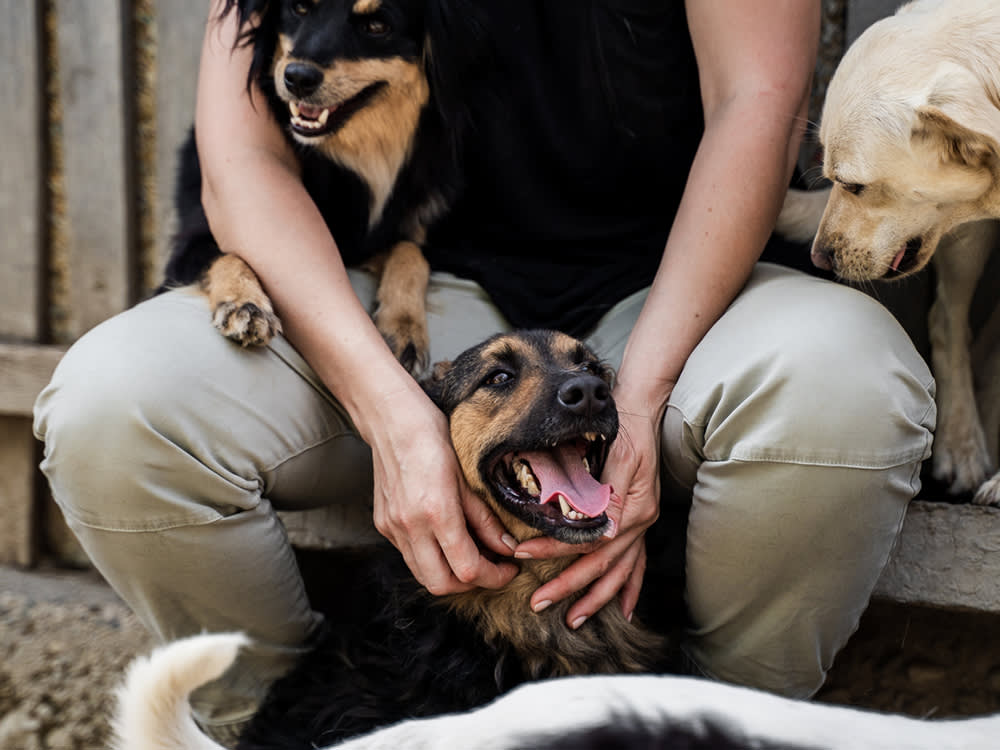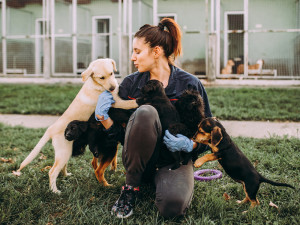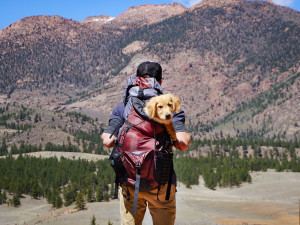Give Back and Vacation Abroad with Purpose
See the world, indulge in new experiences, and save animal lives.
After spending the past few years hibernating, have you considered what your next vacation might be? If you love animals, maybe you’ve thought about adding a pit stop to see some sloths or dogs during your trip. But what about more? Saving street dogs in Spain, cuddling with Kangaroo in Australia, what about helping cats in Kenya? Yep, these volunteer experiences are worth skipping the margaritas and white sand beaches for.
“Animal experience” tourism is becoming an increasingly popular reason to travel. Volunteering with an animal welfare organization is a great way to experience new places without feeling like a helpless observer. Today, these kinds of global opportunities are easier than ever to find, and you don’t have to be a vet to be useful. The most coveted quality in any volunteer is simply a love of animals.
Finding Volunteer Vacations
The intrepid traveler can see a good part of the globe this way. “Non-veterinary volunteers are especially welcome,” emails John Dalley of the Soi Dog Foundation opens in new tab in Phuket, Thailand. “The dogs at the shelter love it when volunteers come, because then they receive the kind of one-on-one attention that our Thai staff just doesn’t have time to give.” In Indonesia, Janice Girardi, founder of the Bali Animal Welfare Associationopens in new tab (BAWA), is increasingly dependent upon volunteer help to make a difference in the lives of the islands’ estimated 500,000 stray dogs. BAWA is located in Ubud, Bali’s art center and home to lots of inexpensive housing and good restaurants. In addition to needing assistance with day-to-day animal care, Girardi welcomes communications and public relations help, as well as people who have a variety of other skills.
On the Gulf of Thailand, Headrock Dogs Rescueopens in new tab is a small operation dedicated to sheltering, healing and rehoming the area’s abandoned dogs. Headrock volunteers are not required to pay for their experience (unlike many other international volunteer positions). The number of dogs in Headrocks’s care varies, but rarely goes below 70, and many are puppies, who are regularly dumped at the shelter compound or at a nearby Buddhist temple (Headrock also cares for the temple’s many dogs). Headrock is an open shelter; while puppies are kept safe in pens, juvenile and adult dogs have space to run and sort themselves into groups. Each day is packed with tasks: The dogs need regular bathing and brushing, along with eye and skin treatments, medications, and feeding. Their sleeping areas, food bowls and the puppy pens need to be cleaned. Equally important, they need human kindness and attention, which are critical to their transformation from anxious and traumatized to frolicking and joyful.
How much do you spend on your pet per year?
On the Puerto Rican island of Vieques, the Vieques Humane Societyopens in new tab offers “rustic” accommodations to anyone who’ll commit to 30 hours of work in the course of a week. President and volunteer coordinator Barbara Rumore welcomes all manner of help — from fundraising and community outreach to yard work and dog bathing. Photographers (and their equipment) are also encouraged to come and take photos of the animals up for adoption. An extra perk for volunteers is the chance to escort an animal that has just been adopted on a flight to its new home on the U.S. mainland.
Connecting Animal Advocates and Adventure Seekers
While some animal sanctuaries seek out volunteers independently, others partner with third parties who help sort out all the overwhelming travel arrangements. Animal Experience International (AEI), an adventure travel company matches vacation travelers with ethical animal-related volunteer opportunities around the globe.
Unlike other “animal experience” travel opportunities, one of AEI’s core values is to partner with only the best and most effective organizations; the founders vet each partner organization before adding it to the lineup. AEI offers 18 trips to locations ranging from Costa Rica to Thailand and Australia. Travelers can choose to volunteer with dogs, cats, turtles, monkeys, elephants, parrots, and kangaroos, among others.
AEI travelers can also customize the length of their trip, from one week to two months, with longer options available. Prices range from $1000-to $2000 (CAD) for one week with reduced rates for longer stays. For two months of helping animals in Thailand, the cost will be $3360 ($420/week) and includes accommodation, meals, training, and COVID testing. The founders of AEI recognize that money is one of the biggest inhibitors to international travel. They have devised aggressive fundraising techniques for clients and a scholarship program. “If someone is inspired enough to go on one of our trips, we’re going to do everything in our power to get them there,” says founder Nora Livingstone.
Trips through AEI also include cultural experiences and sightseeing excursions. Livingstone wants Animal Experience Internationalopens in new tab travelers to experience the natural and manmade wonders that draw tourists to the destinations where they are volunteering. But she is also clear that AEI trips are not typical vacation getaways. “We’re not offering a vacation,” Livingstone says. “This is not going to a resort, this is work. But it’s work that’s transformational — through the animals you work with, through the family you homestay with, and through the community you live in.”






